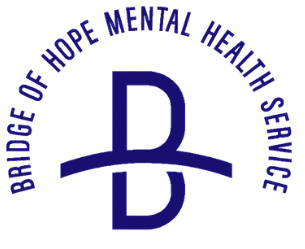Substance Use Disorder Treatment
Stimulant Use Disorder

We Care
Amphetamine and Stimulant Addiction Treatment in Portland, Oregon
What Is Stimulant Use Disorder?
Stimulant use disorder refers to the misuse and dependence on stimulant drugs such as prescription medications like Adderall or illicit substances like methamphetamine. These drugs impact brain chemistry and can lead to psychological and physical dependence. At Bridge of Hope in Portland, Oregon, we provide outpatient treatment for stimulant addiction through personalized, inclusive, and supportive care designed to restore balance and stability.
Get Compassionate, Individualized Care
When Is Treatment Appropriate?
Stimulants may start as a way to improve focus, stay awake, or manage stress. Over time, they can cause mood swings, sleep issues, or serious health complications. If stimulant use begins interfering with your daily life, relationships, or mental health, treatment can help.
Examples of when treatment may be appropriate include:

Stimulation
Using stimulants to get through the day or cope with emotional pain.

Misuse
Taking higher doses than prescribed or using non-prescribed stimulants.

Dependence
Feeling unable to stop despite negative effects on health or work.

Symptoms
Experiencing paranoia, agitation, or loss of appetite.
what to expect at Bridge of Hope OTC
What to Expect from Our Stimulant Use Disorder Treatment Services in Portland, Oregon:
Our stimulant addiction treatment program is grounded in a smaller client-to-staff ratio, allowing for more individualized support and accountability. Clients participate in structured daily therapy, group counseling, and wellness programming that supports the mind and body. We address both the mental health and behavioral aspects of stimulant use and offer wraparound support including peer mentorship and case management.
We recognize that stimulant addiction can stem from many root causes including trauma, pressure to perform, or untreated mental health disorders. Our team of licensed therapists and psychiatric providers works with you to develop a recovery plan based on your history, needs, and goals.
Get Treatment for
common stimulant use disorders

Methamphetamine Addiction
Meth is a powerful stimulant that creates an intense rush but quickly leads to dependency and instability. People may use it for energy or escape, only to experience paranoia, hallucinations, weight loss, and emotional volatility over time. Misuse can rapidly take over daily life, but with the right treatment and support, recovery and stability are absolutely possible.

Adderall Addiction
Adderall is a prescription medication for ADHD, but misuse can quickly become habit-forming and disruptive. People may start using it for energy or focus and later struggle to function without it. Misuse can lead to anxiety, insomnia, irritability, and dependency. With the right support, it’s possible to regain balance and focus without relying on stimulants.
FAQ
Frequently Asked Questions
What kinds of stimulants can lead to dependence?
Can stimulant addiction occur even if I’m using a prescription?
What treatment approaches are available for stimulant use disorder?
Do you offer housing or additional support for clients recovering from stimulant addiction?
A safe, welcoming environment for LGBTQ+ Patients
Inclusive, Identity-Affirming Care
Clients also have access to creative outlets such as mindfulness practices, expressive arts, movement therapy, and community outings to reconnect with sober joy and purpose. LGBTQ+ individuals can feel safe and affirmed in our program, and we also offer gender-affirming housing options through our Rose City sober living homes.

Schedule a Consultation
Ready to Take the Next Step?
If you’re ready to take the next step in your recovery, Bridge of Hope is here to support you every step of the way. Contact us today to learn more about our treatment programs and start building a plan that fits your needs.
Call Today!
503-461-2054
